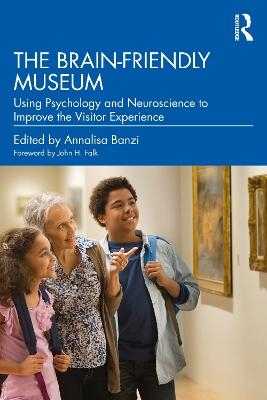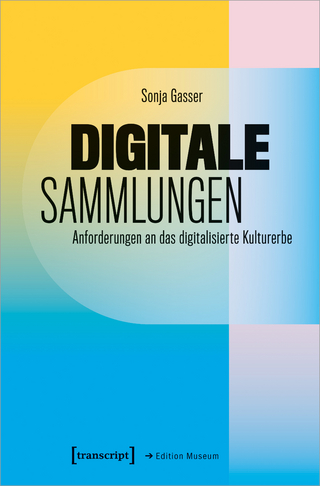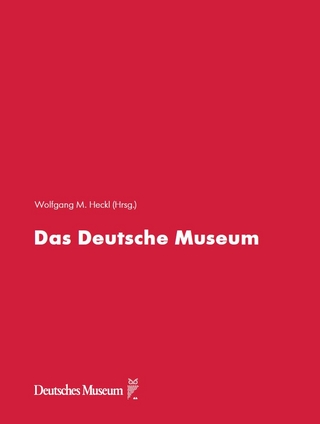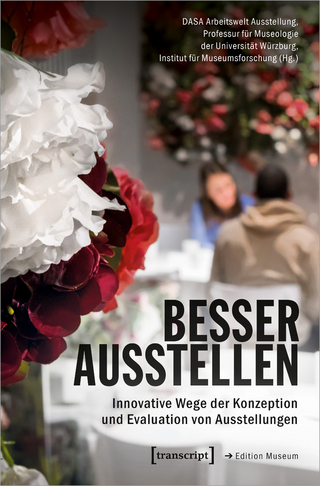
The Brain-Friendly Museum
Routledge (Verlag)
978-1-032-30329-1 (ISBN)
The Brain-Friendly Museum proposes an innovative approach to experiencing and enjoying the museum environment in new ways, based on the systematic application of cognitive psychology and neuroscience.
Providing practical guidance on navigating and thinking about museums in different ways, the book is designed to help develop more fulfilling visitor experiences. It explores our cognitive processes and emotions, and how they can be used to engage with and enjoy the museum environment, regardless of the visitor’s background, language, or culture. The book considers core cognitive processes, including memory, attention, and perception, and how they can successfully be applied to the museum environment, for example, in creating more effective displays. Using evidence-based examples throughout, the book advocates for a wellbeing approach improving visitor experience, and one that is grounded in research from psychology and neuroscience.
This book is a must-read for all museum practitioners and psychologists interested in the relationship between cultural heritage, psychology, and neuroscience. It will also be of great interest to art therapists, neuroscientists, university students, museum stakeholders, and museum lovers.
Annalisa Banzi is an art historian and researcher at CESPEB with a Ph.D. in psychology applied to museum studies. She has an interdisciplinary specialisation in museum studies, psychology, and neuroscience which aims to improve the dissemination of museum contents and to develop visitors’ mental wellbeing and satisfaction.
1. The Brain-Friendly Museum: How Psychology and Neuroscience Can Help Museums to be Brain-Friendly and Promote Wellbeing. 2. Emotions: The First Connection to Our Cultural Heritage. 3. Perception and Museum Display. 4. Attention, Memory, and Learning in Museums. 5. What is the Right Language and Type of Communication to Engage Different Kinds of Museum Audiences? 6. Problem Solving, Decision-Making, Judgement, Reasoning, and Creativity: The Role Of Museums in the Visitors' Cognitive Growth. 7. Musuems, The "Magic Box", and Neuroscience Tools. 8. Museums: How They Foster Wellbeing. A Round-Up of Initiatives 9. Parallel Worlds: Popular Education Through Neuroscience and the Fine Arts 10. The Museum And Quality of Life. 11. Unlocking Value In Museums and Art Galleries Through Measuring Wellbeing. 12. The Museum's Mind: A Genetic Code For Cultural Exhibitions. 13. Virtual Reality and Neuroarchaeology: Visual Perception and Cognition of an Archaeological Excavation. An End That is a Beginning
| Erscheinungsdatum | 20.09.2022 |
|---|---|
| Zusatzinfo | 3 Tables, color; 11 Line drawings, color; 20 Halftones, color; 31 Illustrations, color |
| Verlagsort | London |
| Sprache | englisch |
| Maße | 156 x 234 mm |
| Gewicht | 285 g |
| Themenwelt | Kunst / Musik / Theater |
| Reisen ► Reiseführer | |
| Geisteswissenschaften ► Geschichte ► Hilfswissenschaften | |
| Geisteswissenschaften ► Psychologie ► Allgemeine Psychologie | |
| ISBN-10 | 1-032-30329-8 / 1032303298 |
| ISBN-13 | 978-1-032-30329-1 / 9781032303291 |
| Zustand | Neuware |
| Haben Sie eine Frage zum Produkt? |
aus dem Bereich


